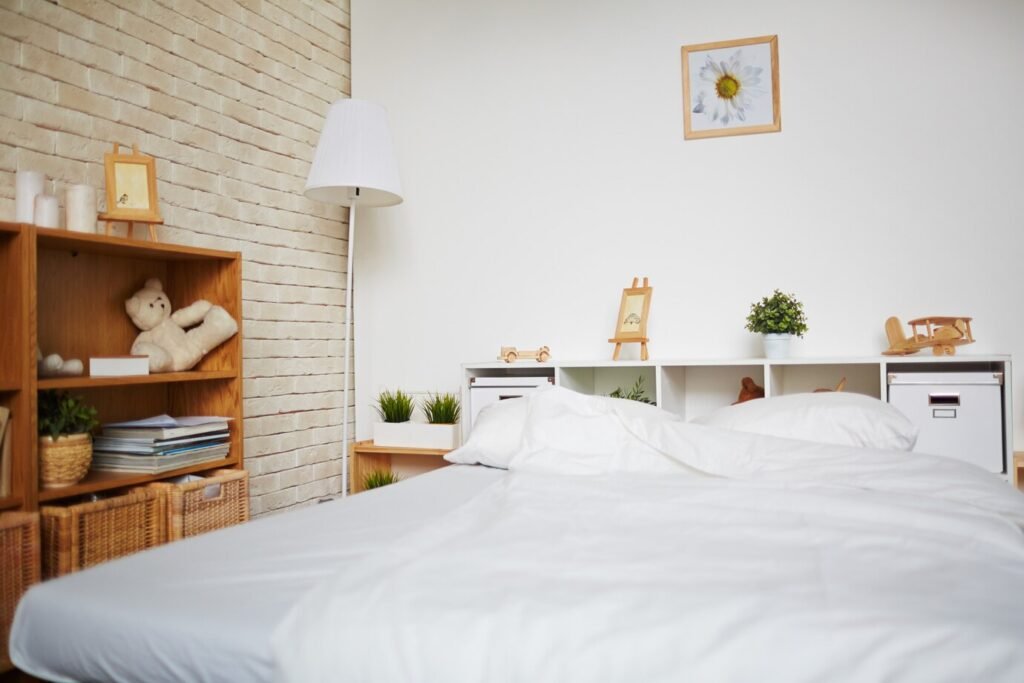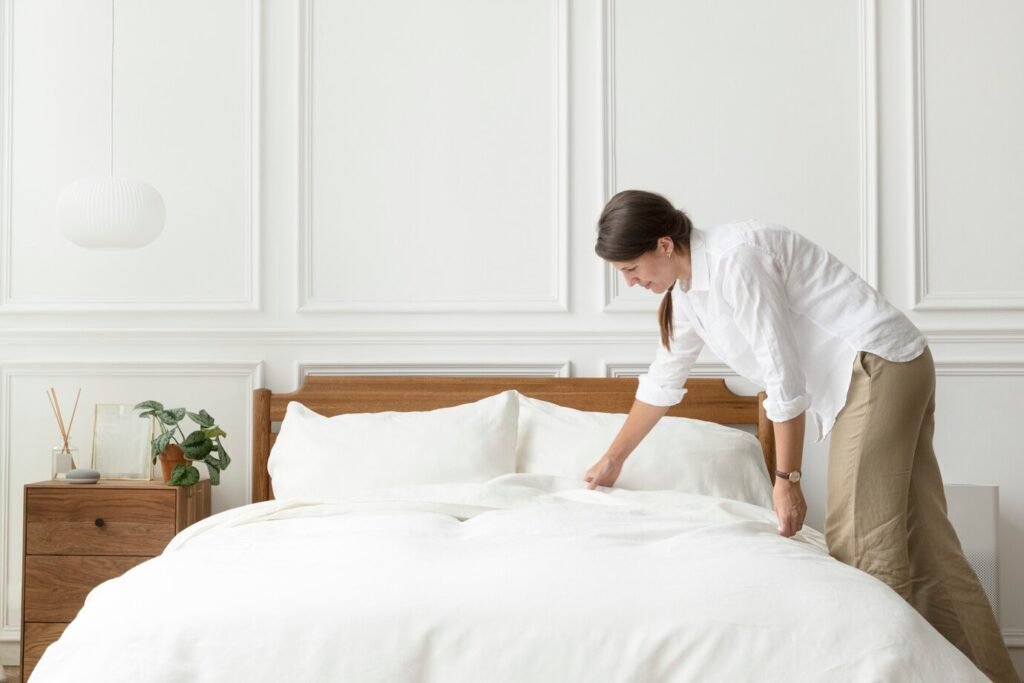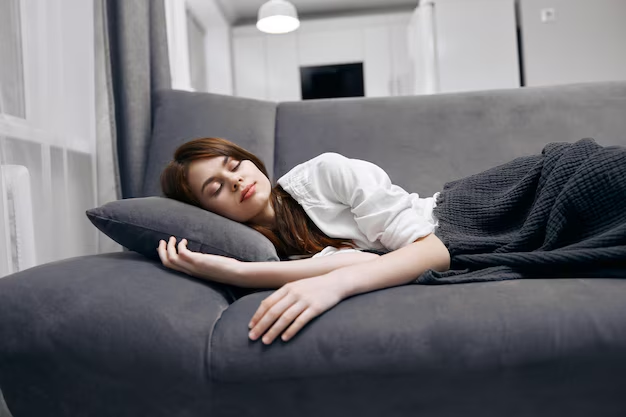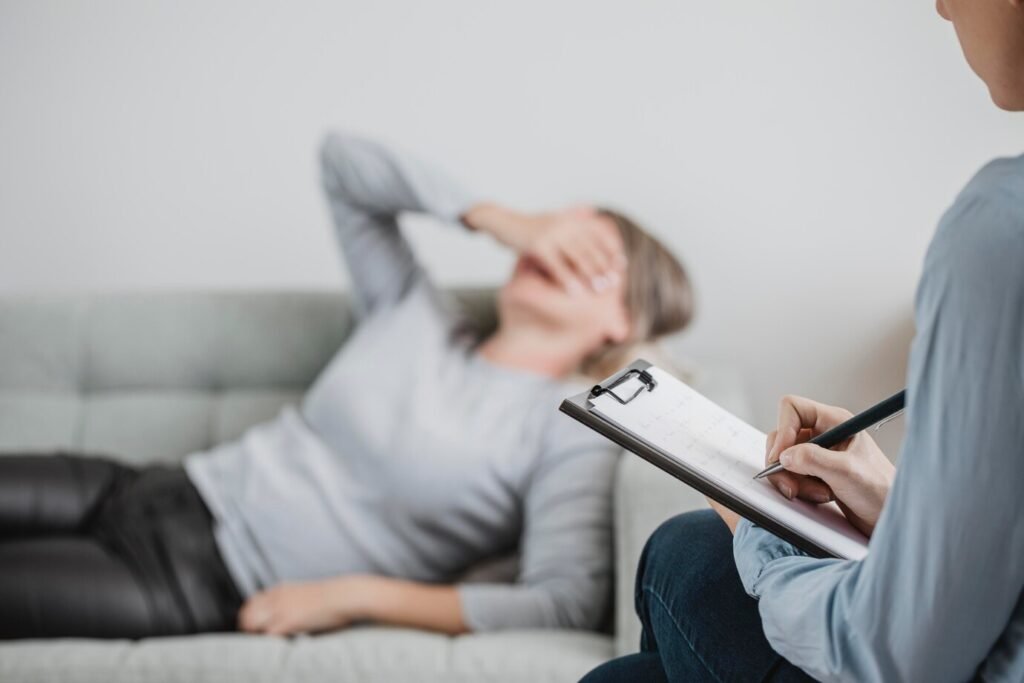
The Silent Crisis of Sleep Deprivation and the Pursuit of Restorative Nights
Our daily hurry never allows enough time for sleep, which many people treat like an unnecessary waste.
People boast about working through the night beyond their limits to drain their available waking hours.
Although people show high levels of achievement and never-stop action, they face a hidden sleep deprivation problem.
Many people endure long, sleepless nights by tossing and turning in bed instead of nodding off until they finally succumb to deep sleep.
Among these sleep sufferers, multiple people wake up multiple times each night and find it difficult to return to solid sleep.
Every person goes through moments where they wake feeling awful despite wanting to feel truly wonderful.
Our need for sleep equals our need for food, water, and air because it serves as a biological requirement that assists our bodies in healing.
Sleep functions as an active biological process when your entire body and mind restore themselves to peak health.
At night our brain saves learned information and reacts to our emotions while removing day-to-day built-up toxins.
Immune defense increases while hormones regulate themselves and cells operate their repair functions.
Our general well-being solely depends on our ability to get quality sleep each day.
On the other hand, chronic sleep deprivation has a lasting impact on our lives. Our immune protection decreases when sleep deprivation occurs, leaving us vulnerable to developing health problems.
Lack of proper sleep reduces our mental capacities, especially our attention and memory performance, and alters our judgment processes. leading to weight gain, disrupted metabolic control, and increased cold, breaking our metabolic control and causing nervous system stress.
Regularly not getting enough sleep heightens our possibility of developing major medical issues, including heart problems and stroke, as well as type 2 diabetes and certain cancers.
Our daily life enthusiasm decreases as sleep deprivation takes away our energy.
But do not despair, weary traveler of the night! Improved sleeping habits are possible to achieve today.
You should not accept an existence without quality sleep because you can make changes. Following basic effective techniques lets you regain your night rest and access better sleep recovery.
This guide provides you with 12 scientific recommendations on how to fall asleep more quickly, stay in deep sleep longer, and wake up fully energized.
Prepare yourself to improve your sleep habits and bring back the feeling of waking up rooted in joy.
1. Establishing regular bedtime habits creates your best sleep tool.

Our bodies have an automatic 24-hour rhythm called the circadian rhythm, which controls our natural sleep-wake cycle.
Multiple body processes depend on this rhythm, such as sleep timing and hormone production, along with body temperature and digestive actions.
Our circadian rhythm works best when its routine practices remain dependable through the day.
A fixed sleep routine connects your bodily clock to proper sleeping and waking times. As your sleep time approaches, your body turns on sleep hormones while switching off electricity hormones.
Unpredictable sleep patterns disrupt the natural balance of your hormones and sleep cycle.
Actionable Steps:
Keep your daily sleep and wake times the same throughout the week and on weekends.
While it takes time to get used to this method, especially during free days, routines should stay consistent.
Helping your sleep rhythm function properly makes up your internal sleep signal.
You need to change your sleep schedule slowly if you currently wake up and go to bed randomly.
Move your sleep and wake time 15 to 30 minutes forward every day until you set your regular sleeping pattern.
Follow your sleep patterns by observing when you naturally become sleepy and wake up.
Whenever you feel worn out at your regular bedtime, head to sleep regardless of what time it is. Match your awake time to your body’s regular point of natural alertness.
Plan your weekend activities, but let yourself adjust sleep times moderately. Keep your sleep changes on weekends within one or two hours of your regular sleep times on workdays.
You may lose sleep quality and regularity from extreme sleep differences between weekdays and weekends.
Straighten your wake-sleep cycle by subjecting yourself to outdoor brightness right when you wake up.
The light tells your body to make less melatonin and keeps your wakefulness habits steady.
Resorting to a fixed sleep schedule helps your body understand when it needs to rest and helps you drift to sleep faster as you maintain steady sleep patterns.
Your sleep schedule shapes your entire sleep quality, so treat it as your ultimate power asset.
2. Design your sleeping space by preparing your bedroom.

Your bedroom requires development as a calm oasis made for relaxation and rest. Sleep happens best in specific environments that effectively support your rest.
Make your bedroom a sleep sanctuary that creates peaceful rest by following all necessary sleep preparation steps.
Our minds and bodies react to environmental signs instantly. Darkness increases the production of melatonin, the sleep hormone, while light decreases its release.
Restful sleep comes more easily when your body temperature lowers during nighttime.
Disturbances at night interfere with how easily people slip into sleep during their lightest sleep phases.
Actionable Steps:
Your sleeping area should be totally dark. Put up dark window coverings to stop outdoor lights from reaching your room, including those from streetlights and dawn sun.
Low lights during nighttime inhibit your body’s production of melatonin. You can achieve better darkness by using an eye mask.
Your ideal bedroom temperature range for sleep should be between 60-67 degrees Fahrenheit or 15-19 degrees Celsius, and you should keep it that way.
Body temperatures usually fall when we sleep, and a temperature range between 60 and 67 degrees Fahrenheit (ca. 19°C) supports this sleep-friendly environment.
Control temperature by running air conditioning systems or opening bedroom windows. Also consider using ceiling fans to aid airflow.
Reduce noisy distractions from your sleep area. Plugs and a white noise unit help you relax better when road sounds and other noises bother you.
The uniform relaxing sounds from white noise machines help you fall asleep while blocking irritating outside noises.
Choose mattress and pillow materials that maintain your spinal alignment and make your body feel comfortable.
Choose removable bedding layers that stay fresh and pleasant. Test various pillow and mattress models to get the right ones that match your personal sleep requirements.
Too many items scattered across your bedroom create mental anxiety, which prevents you from feeling relaxed.
Maintain a clean and organized bedroom space without excessive items present. The sense of tranquility in a room helps create peaceful thoughts.
Research shows that sleep improves when using lavender, chamomile, and sandalwood scents, as they have relaxing effects.
Use safe essential oil diffusers or scented candles by putting them out before sleeping to achieve a soothing ambiance.
When you design your sleeping space properly, you create a perfect bio-friendly place to sleep.
When you create a dark, cool space that is silent and comfortable, your body receives clear signals to relax and go to sleep.
3. Making a bedtime routine becomes the foundation for better sleep success.

Transitioning from active day activities to sleep needs a step-by-step end-of-day preparation.
Like athletes, you need warm-up exercises before a race. You require pre-sleep preparation of both mind and body.
A relaxing bedtime routine serves as your sleep preparation tool to help you change from wakefulness to rest.
Physical and mental stress makes it harder for people to fall asleep. When you follow a peaceful nighttime ritual before bed, it decreases your stress hormone release while triggering the rest and digest mechanism of your nervous system.
To achieve excellent sleep performance, you need to go through a natural change from wakefulness to restful relaxation.
Actionable Steps:
Limit all digital device usage, including smartphones, cellphones, tablets, computers, and television screens, for 1 to 2 hours before your bedtime.
The blue light coming from electronic devices blocks melatonin production and activates brain activity, which prevents you from easily going to sleep. Escape digital devices when preparing to sleep.
A hot water bath before bedtime helps your muscles relax while balancing body temperature to signal sleep.
Your body should become easier to sleep when your temperature naturally lowers after your warm bath.
The peaceful experience of reading physical books upsets the brain’s signals for sleep better than digital devices.
Pick a soft and entertaining book material above reading materials that spark energy or cause stress.
Light yoga stretches calm muscles and promote relaxation through gentle poses and stretches.
Incorporate deep breathing with gentle, relaxing movements to prepare for sleep.
Strenuous physical activities should end well before you go to sleep.
Mindful meditation techniques calm the stream of thoughts that disturbss our sleep.
Minding your breath or meditating for short periods brings substantial sleep benefits.
Keeping a journal before bedtime helps you vent the day’s thoughts instead of letting them disrupt your sleep.
When you focus on things you are grateful for, your mind will naturally transition into a calm and relaxed pattern.
Soft music or nature sounds, such as running water, create relaxation by calming your thoughts and your mind.
Listening to high-energy songs will cause problems with sleep.
Try different methods and choose the ones that bring you the best results. Develop a consistent nighttime routine that signals to your brain and body to prepare for rest.
Design your bedtime preparations as relaxing habits you enjoy doing daily to achieve restful sleep.
4. Your sleep success comes from monitoring your dietary choices combined with your drinking patterns.

Food and liquid consumption, together with your timing for consumption, impacts your sleep quality substantially.
Your sleep quality is negatively affected by certain foods and drinks, but other foods can help you unwind and feel drowsy.
Your sleep quality depends heavily on how you handle your meals and beverages.
An analysis of scientific evidence demonstrates that caffeine and alcohol function as sleep-disrupting substances.
The stimulant caffeine inhibits adenosine signaling, which creates sleepiness in the body.
Alcohol produces initial sleepiness but disrupts your nighttime slumber, which causes breakdowns in your sleep patterns and reduces time spent in REM sleep.
Eating heavy meals during nighttime disrupts digestion and causes unwanted sleep discomfort.
Actionable Steps:
You should limit your caffeine consumption specifically during the afternoon followed by evening hours because the substance stays in your system for multiple hours.
Restrict the consumption of caffeinated beverages (coffee, tea, sodas, and energy drinks) after midday throughout the afternoon and evening hours.
Choose decaffeinated beverages and herbal teas as your daily afternoon and evening choices.
Initial sleepiness from alcohol consumption quickly transitions into sleep disruption, which results in fragmented sleep alongside decreased sleep intensity throughout the night.
Moderate alcohol consumption should occur several hours before your scheduled bedtime (2–3 hours or more).
The consumption of heavy, spicy, or fatty foods before bedtime produces digestive stress that causes sleep disruption.
Select light evening meals with snacks that you finish consuming two to three hours before your bedtime.
Maintain hydration throughout the day and cut back on fluids during bedtime hours to lower the number of bathroom trips at night.
Avoid drinking large amounts of fluid shortly before going to sleep.
Eating foods containing magnesium supports proper muscle rest and regulates sleep patterns.
Add magnesium-rich foods to your diet through leafy greens together with nuts, seeds, and whole grains.
Select sleep-promoting snacks as needed before bedtime, which should be easy to digest and maintain stable blood sugar levels.
For bedtime snacks, you can select either whole-grain cereal with milk, a banana, or a single handful of almonds.
Strategic food and drink selection combined with careful timing of your eating schedule helps you establish an eating pattern that benefits instead of obstructs your nightly rest.
Sources of sleep-promoting nutrients should power up your body while you avoid any substances that interfere with valuable sleep rest.
5. Daytime Expectations for Nighttime Restoration Begin with sunlight exposure and daily movement.

Your daytime actions establish the foundation for how well you sleep throughout the night.
Evidence shows that daily exposure to sunlight and consistent exercise serve as strong daytime practices that enhance your nighttime rest quality.
Your body maintains its circadian rhythm through exposure to sunlight. Natural morning light exposure creates a solid wakeful state that leads to enhanced melatonin production during evening hours.
Sleep quality improves through exercise, particularly when exercise intensity remains moderate, because physical activity lowers stress while enhancing mood and deepening sleep stages.
Actionable Steps:
The Fundamentals of Sun Exposure Begin with 15 to 30 minutes of possible morning light right after you wake up.
Open your blinds or pull back your curtains, take a quick stroll outside, or eat your breakfast in a sunlit location.
Exterior conditions deliver much brighter illumination even when skies are overcast.
Regular Exercise, But Time it Right: Engage in regular physical activity, ideally most days of the week.
The optimal exercise duration matches 30 minutes of moderate-intensity movement between brisk walking, jogging, swimming, or cycling.
Active exercise performed close to bedtime should be avoided because it generates stimulation, which decreases your ability to sleep.
The sleep-promoting benefits of exercise increase when individuals exercise outdoors because of their sunlight exposure.
Engage in outdoor physical activities as part of your fitness plan whenever possible.
Seek out a workout that suits your preferences. Your choice of exercise should align with your natural enjoyment and comfortable lifestyle.
Investing in exercises that you love will increase both their sustainability and their pleasure throughout the long term.
Achieving sleep-promoting results from exercise depends entirely on maintaining regular exercise routines.
Reduce your time spent in inactive sitting positions by implementing frequent actions throughout your entire day.
Regular breaks should include standing up and stretching with movement throughout your activities.
Using physical activity leads to better overall wellness together with improved sleep quality.
The combination of daily sunlight exposure and exercise establishes essential elements that lead to better nighttime sleep quality.
The daytime routines you perform operate together to keep your circadian rhythm balanced and reduce stress while getting your body ready for restful sleeping.
6. Learning masterful stress management techniques helps you achieve sleep rest by calming your mental state.

Sleep escapes easily from those plagued by anxiety and stress.
Your racing thoughts combined with daily concerns and future worries produce hours of sleeplessness that prevent you from either falling asleep or staying asleep throughout the night.
Stress control techniques provide a necessary foundation for achieving peaceful sleep because they help calm your mind.
The Science Behind It: Stress triggers the release of cortisol, the “stress hormone,” which is stimulating and counteracts the effects of sleep-promoting hormones like melatonin.
Chronic stress can lead to overactivity of the sympathetic nervous system (“fight or flight”), making it difficult to shift into the relaxed state necessary for sleep.
Actionable Steps:
Engaging in deep breathing exercises, which include diaphragmatic breathing and box breathing, helps you manage your nervous system activity and lower stress levels.
Deep, slow respiratory inhalations activate the parasympathetic nervous system to create relaxation.
Through progressive muscle relaxation, you should systematically focus on tensing and relaxing specific muscle groups across your body.
Deep breathing exercises aid in physical tension elimination while activating relaxation responses, which both prepare your body for sleep.
Through mindfulness meditation, you learn to observe your present thoughts with an unbiased attitude.
Through this practice, you can silence mental activity and decrease anxiety levels because it creates peaceful serenity, which promotes better sleep.
Through guided imagery, you can develop peaceful images in your imagination.
Through this practice, you can achieve stress reduction while enjoying relaxation benefits that support mental preparation for sleep.
Mind-body practices known as yoga and tai chi unite gentle physical exercises with mindful breathing patterns to create both mental and physical relaxation.
Through regular practice, individuals can experience reduced stress levels while their mood improves and their sleep quality becomes better.
Too many tasks combined with responsibilities can create overwhelming situations that cause both stress and sleep-related problems.
Applyproper time management techniques along with proper task prioritization to handle stress and maintain daily control.
Test multiple stress management approaches to identify which ones work best for you.
Daily scheduling of relaxation practices before bedtime should be your focus because this combination helps both lower stress and quiet your thoughts for excellent nights of rest.
7. The primary function of your bed remains sleep, but it serves additional purposes through proper optimization.

Your bed exists mostly for sleep and intimacy activities. Participating in alternative activities on your bed diminishes the natural connection, therefore creating obstacles to obtaining restful sleep at bedtime.
Your bed should be optimized to serve its basic functions of rest and healing.
His Learning Process: Classical conditioning helps guide our sleep practices.
Your brain begins associating your bed with non-sleep activities when you engage in them at night.
When the sleep-bed connection weakens, it becomes more challenging to drift off to sleep.
Actionable Steps:
Your bed serves its primary functions as a rest area for sleep and intimacy activities.
Your bed should only serve for two purposes: sleeping and intimacy.
Eliminate all other activities, including work, schoolwork, TV watching, phone usage, and stimulating behavior, from your sleep space.
A sleepless night requires immediate action: it indicates the need to leave your bed and engage in relaxing activities elsewhere, such as reading, listening to calming music, or practicing relaxation techniques before attempting to sleep again.
Relaxation techniques before returning to rest. Have a rest only after you start feeling worn out again.
Your brain establishes a stronger connection between your bed and sleep as you limit its use to rest and intimacy.
Your body will recognize your bed more effectively as a sleep indicator because of this systematic reinforcement process.
You should establish a calming pre-sleep climate that involves darkened spaces with peaceful silence and comfortable temperatures as recommended in Tip 2.
A sleep sanctuary environment continues to grow stronger while enhancing the relationship between your bed and resting period.
Taking too many extended day naps can interrupt your nighttime sleep pattern and harm your bed-sleep association unless these naps do not disrupt nighttime rest.
Enhancing your bed’s functions for sleeping alongside intimacy will strengthen the connection between sleep and your bedroom, which in turn helps you sleep faster and achieve better nighttime restfulness.
Train your mind to identify your bed as your serene sleep sanctuary, which exists solely for restful sleep.
8. Strategic Napping (or Avoiding Them Altogether): Nap Wisdom

Taking naps brings both benefits and drawbacks into sleep routines.
Properly timed naps enhance alertness and skills, but sleep interruptions result when you nap wrongly or too long.
You need to learn how to nap effectively or skip napping entirely to optimize their benefits and protect your nighttime sleep.
Science proves your nap sessions help repair lost sleep and boost your ability to focus while enhancing mood and thinking power.
Taking long stretches of naps in the afternoon might decrease your sleep drive and interrupt your night sleeping period, especially if insomnia poses a challenge.
Actionable Steps:
Short power naps (20-30 minutes) are often best: Short “power naps” of 20 to 30 minutes are generally considered the most beneficial type of nap.
They deliver instant performance benefits without making you feel drained afterward and prevent major sleep disruptions during the night.
Nap best before 3 PM if you want to take a nap during the day. Taking a nap close to bedtime reduces your sleep drive and makes falling asleep later harder.
Listen to Your Body’s Cues: Pay attention to your body’s natural sleepiness cues.
Consider taking a short nap when your sleepiness urge builds up, especially if the timing matches your sleep schedule and goals.
People who deal with insomnia or night sleeping problems should refrain from taking naps since this practice makes restful sleep at night harder to achieve.
Takingnaps at night can make insomnia worse because they weaken the sleep drive.
Repeat Naps Like You Would Normal Sleep: Stick to the same nap schedule and length when you take naps to match your routine for night sleeping.
Nap comfortably in a setting that matches your sleep space with low light and quiet while maintaining a relaxing temperature.
Your nap will help you recover better when you sleep in a peaceful environment.
Examine whether napping helps you reach your sleep targets. Take short, strategic naps when they boost your alertness and daily energy without harming your nighttime sleep routine.
Nap only when proper sleep hits problems because it affects your nighttime rest, especially if you already have insomnia.
9. Take Care With Your Fluids to Sleep Better

Your sleep and total health depend on drinking enough water every day.
The number of times you get up to use the restroom during sleep depends on how you drink fluids throughout the day.
Take water wisely throughout the day to help sleep without cutting into your rest.
Dehydration causes physical distress such as tiredness and muscle cramps that make it difficult to fall asleep.
A large drink before sleeping makes you have to use the bathroom more often, which interrupts your natural sleep rhythm.
Actionable Steps:
Drink water evenly throughout your day to reach proper hydration levels.
Have small drinks throughout your day to stay hydrated instead of consuming large quantities at a time.
Cut back your fluid consumption in the 2-3 hours before you go to sleep to avoid waking up in the night to use the restroom.
You don’t need to become dehydrated, but focus on having fewer fluids during your evening hours.
Having sugary drinks before bedtime causes blood sugar fluctuations that interfere with sleep patterns.
They make you urinate more frequently and require more trips to the bathroom during night hours.
Low amounts of alcohol and caffeine before bedtime become diuretics that boost urine production, which harms sleep quality.
Drink water based on your thirst signals during the day and limit your fluids in the evening.
Avoid heavy water intake when your thirst is satisfied, especially during evening hours.
When you wake thirsty at night, take a modest sip of water, but avoid excessive drinking before trying to sleep again.
Discover your personal best drinking pattern and bedtime habits to support better sleep.
Stay hydrated all day to stay healthy, but reduce water intake at night to cut down on bathroom trips during sleep.
10. You should tackle diseases that cause sleep issues.

Sleep problems may not stem from poor sleep habits alone but appear as signs of medical health issues.
Dealing with these medical problems helps us restore better sleep and enhance our overall health.
Various medical problems and mental health problems affect how well people sleep.
Various medical and mental conditions, including sleep apnea, restless legs syndrome, chronic pain, thyroid problems, anxiety, depression, and PTSD, can make it hard for people to sleep normally.
People need proper treatment for their medical issues to achieve better sleep patterns.
Actionable Steps:
Visit Your Doctor Since Good Sleep Habits Alone Do Not Improve Your Sleep See Noticeable Improvements Consult Your Doctor.
They recognize medical conditions that trigger your sleep problems so you can get needed treatment.
Talk to your doctor about potential sleep disorders, including sleep apnea and insomnia plus restless legs syndrome.
Handling these medical conditions requires special medical treatment.
Visit a mental health professional to check if your sleep problems stem from anxiety, depression, or post-traumatic stress disorder.
Special sleep treatment and medicine help people with these conditions sleep better.
Work with your doctor to establish all methods needed to manage your long-term pain issues.
Pain control measures show strong improvements in how well you sleep at night.
Discuss your medical conditions with your doctor to start proper management for sleep issues, especially if you have a thyroid problem.
Patients often see better sleep quality after treating their medical conditions.
Tell your doctor about your medication use because sleep problems and side effects can occur because of certain medicines.
Your doctor can examine your current drugs and suggest better options when medicines cause sleeping issues.
Your health conditions strongly affect how well you sleep. Contact trained medical experts if you think health problems cause your sleep troubles.
To achieve true improvement, patients need to correct their underlying medical conditions first.
11. Sleep takes time and effort, so stay committed to your efforts each day.

Getting better sleep takes repeated effort, which needs your dedication and ongoing work over time.
Don’t get discouraged if you don’t see results immediately. Follow your sleep improvement plan over time while monitoring your results and introducing changes to your methods as required.
Research supports the idea that it takes time to form habits. You need continuous practice before your sleep habits and patterns transform.
It takes multiple weeks or months to change sleep habits and see improved sleep quality. Take your time both with yourself and the method you use.
Actionable Steps:
Begin by applying one sleep habit tip before making larger changes to your sleep plan.
Begin by adding simple changes one by one to your sleep habits until you feel ready to include more steps.
Use either a sleep log or a smartphone app to watch your sleep habits and scoring before and after you put these tips into practice.
Keeping sleep records helps you see which methods help you sleep better and which need improvements.
Follow your sleep schedule daily to achieve better results.
Strive to keep your new sleep habits and routines throughout the week and on weekends as well as during all travels.
Despite perfect efforts in sleep routines, you will experience nights of poor sleep.
You must continue following a new sleep pattern even though it results in occasional setbacks. Go back to your regular sleep habits while waiting patiently and staying committed to your methods.
Different methods work better for each individual. Keep trying various sleeping tips until you discover which methods help you sleep better according to your specific needs and patterns.
Review and change your daily habits as data shows in your sleep tracking results.
Notice and honor every sleep gain, no matter how small. Following your sleep progress helps you maintain motivation and dedication to better sleep habits.
Growing great sleep habits requires time and effort. Stay patient and do the same helpful actions every day while being gentle to yourself as you progress.
You can achieve better sleep night after night when you keep using these tips over a long period.
12. When your sleep problems require expert attention, do not try to solve them alone.

Keep looking for professional medical assistance from sleep specialists or your doctor since you tried these strategies for multiple weeks without enough sleep relief. Sleep disorders create many problems that professional medicine can effectively solve.
Experts have researched that sleeping issues go beyond basic lack of willpower and bad sleep habits.
These disorders need medical evaluation and special healthcare to handle them. Not seeking treatment for your sleep problems will create permanent sleep loss and bring about health problems.
Actionable Steps:
You should not conceal your sleep issues, as they require improvement, and assistance is readily available.
Many people have trouble sleeping, yet doctor-approved forms of treatment exist.
Speak with your main doctor or have your doctor refer you to a sleep professional.
Doctors specializing in sleep medicine receive training to identify and treat sleep problems among patients.
At your doctor or sleep specialist visit, bring detailed information about how you sleep each night, plus describe your sleep challenges and any medical background facts.
Writing down your sleep behaviors in a journal helps you share details about your sleeping habits.
Consult your medical team about available treatments for sleep disorders.
People with sleep disorders receive solutions through life changes plus CBT-I sessions, prescribed medication, and alternative therapies.
Be open-minded about various treatment options, as what works for one patient might not benefit others. The journey to find proper medical solutions may need variation in approaches until you discover the effective option.
Keep doing what your doctor recommends about sleep management.
You must stick to your recommended treatment to reach your desired results.
People who want professional help demonstrate their fortitude rather than their weakness.
If you are unable to resolve sleep issues on your own, please consider reaching out to a sleep specialist for their valuable expertise.
Sleep specialists help identify sleep disorders so they can create successful treatment and support plans for you to improve the quality of your nighttime rest and feel wonderful when morning comes.
Your sleep quality creates personal growth, so start transforming your sleep habits today.
Sleep acts as an essential process that supports our health and organizes our mental state effectively.
Implementing these proven sleep suggestions with sleep priority changes will help you achieve better rest and performance.
Better sleep means making small progress toward a sleep-friendly daily plan.
Use these tips slowly in both your day and your night schedules. Keep monitoring your sleep habits and modify your approach when results show improvement.
Share positive moments with yourself and stay determined to make this habit work each day.
Consult a professional if you find it difficult to solve your sleep problems on your own.
Putting sleep first will improve your physical and mental strength as well as enhance the quality of your daily life.
Every morning provides you the chance to experience total physical and mental rejuvenation while welcoming each new day with passion and vitality.
The path to an incredible sleep transformation lies before you.
Begin your sleep transformation now to restore better rest and experience fantastic feelings in the morning. You will experience pleasant rest as you enter your better days ahead.
Your Sleep Abilities Become Clearly Visible During Your Final Resting Period
Through sleep, your body transforms energy into essential health and mental-emotional wellness. These 12 research-backed sleep improvement steps with sleep priority will improve your potential show results.
Doing bedroom routines daily brings better sleep results above perfect nightly sleep habits.
You can introduce these suggestions into your daily schedule step by step before sleep.
Record your sleep progress when you accept your slow progress and refine your sleep techniques.
Take note of small milestones that lead you toward your goal and keep doing these things daily. If your sleep problems continue, you need medical help.
Taking pleasure in good sleep strengthens your total health while improving the value of your daily life.
Every day would begin with heightened energy levels and a positive mindset, ready to tackle the tasks ahead. You will experience a positive transformation now; your awesome awakening will happen.
You will take your first step toward better sleep today by feeling really wonderful upon waking after quality rest.
Happy and respectful days will meet you once you have slept well.